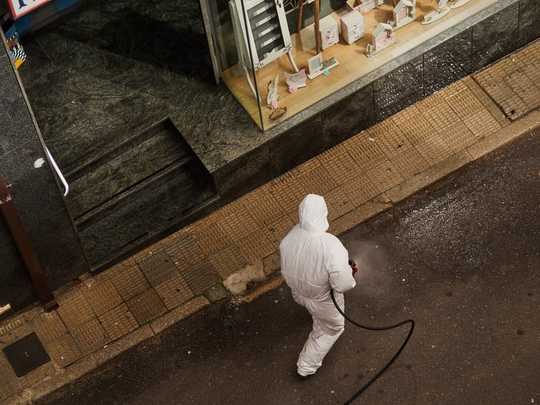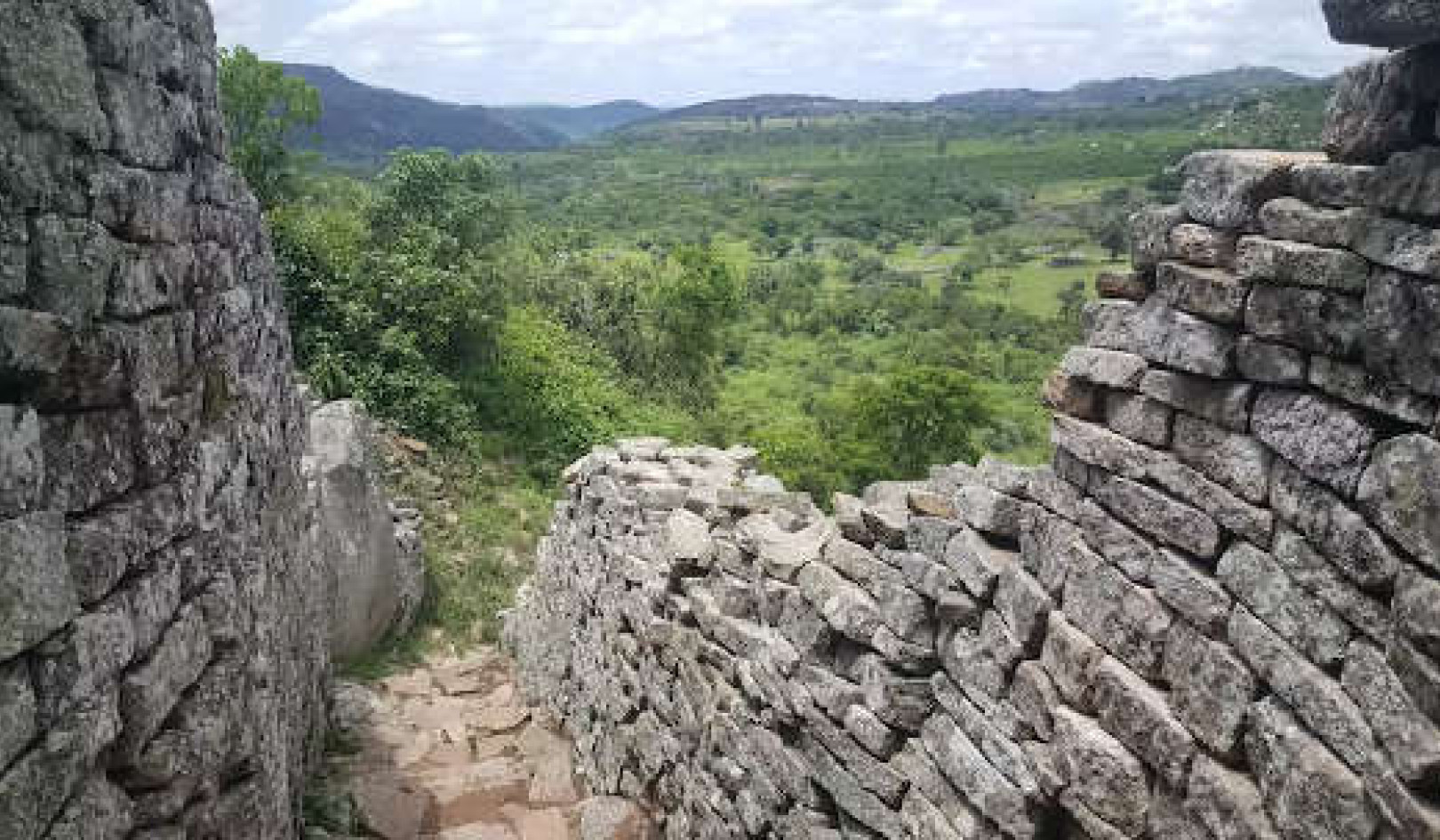 Many of the tasks employees are doing now were not imagined even weeks ago. People are becoming crisis managers, sanitation monitors and work-from-home co-ordinators. (Unsplash) Lisa Cohen, McGill University
Many of the tasks employees are doing now were not imagined even weeks ago. People are becoming crisis managers, sanitation monitors and work-from-home co-ordinators. (Unsplash) Lisa Cohen, McGill University
Nearly a million people in Canada have already applied for employment insurance, and analysts are predicting that coronavirus-related jobless claims in the United States could exceed three million. Job loss is only one of the many effects of COVID-19 on work and workers.
These effects cascade beyond accelerating the ongoing work-from-home movement. Some of these changes could persist well beyond the pandemic itself. In the midst of COVID-19 and measures being taken to contain its impact, many employees are not just doing their jobs but transforming their job routines.
Coronavirus is eliminating the tasks that some employees normally do. There are no clients to consult, no trips to book, no students to teach, no concerts to perform and organize, no products to deliver, no new data to input.
Eliminating positions is one possible response to this shift. Another is for employees, together with their managers and coworkers, to rearrange work and take on different responsibilities.
Many of the tasks employees are doing now were not imagined even weeks ago. People are becoming crisis managers, sanitation monitors and work-from-home co-ordinators.
 A Spanish street is disinfected due to the coronavirus outbreak. (Unsplash)
A Spanish street is disinfected due to the coronavirus outbreak. (Unsplash)
Meanwhile, workers in overrun government offices, hospitals, grocery stores, as well as those operating out of the public eye in supply chains, are having to find new ways of working that allow them to manage the onslaught of professional responsibilities they now face.
Startups will see deeper effects
While these effects are widespread, they are likely to be more extreme for people working in small enterprises, and especially in startups. Following the coronavirus-fuelled decline in financial markets, startup investors are facing new pressures and they’re passing them on to the entrepreneurs they’re funding.
The CEO of one startup I have been studying has been directed by his main investor to reduce costs by 50 per cent. He’s also closing a physical office, taking over product ownership, working to motivate and retain people in key positions and create some sense of social cohesion, all while mapping out a sales strategy for a marketplace that is in constant flux.
He’s doing all of this from home while helping home-school two young children. His days never had a predictable pattern before the pandemic but this represents a new extreme.
 Some workers are home-schooling their kids while holding down jobs during the pandemic. (Annie Spratt/Unsplash)
Some workers are home-schooling their kids while holding down jobs during the pandemic. (Annie Spratt/Unsplash)
This startup’s operational shifts due to COVID-19 don’t end with the CEO’s job. The workers at his startup have been prepared in many ways. With three offices spread globally and an existing policy that encouraged occasional work from home, video-conferencing and remote work were nothing new.
But now all of his remaining employees are changing their work habits as they figure out how to replicate practices like face-to-face job interviews and informal contact.
What now?
Similarly, employees in more established organizations are also changing their work routines. An orchestra’s artistic co-ordinator I know went from anticipating putting in 90-hour weeks managing logistics for a concert series to a nearly blank slate, with little certainty about what work she should now be doing.
She started by unravelling arrangements for the week’s concerts and then regrouped. She shifted to working on the next wave of concerts but that was soon cancelled. She then moved to planning for next year’s programming but that still wasn’t enough to fill her hours.
Finally, she offered her services to help the marketing department with short translations and editing, and doubled down on efforts to launch a symphonic-composition competition that will help artists whose livelihoods have been hurt by the coronavirus.
Within my own university, the same as at other schools, instruction has moved from in-person classrooms to a remote format. The ripple effects are far-reaching.
Instructors are scrambling to convert materials, learning specialists are leading task forces and workshops to ease the transition and instructors with more remote-teaching experience are mentoring those who have none.
Meanwhile, researchers are working to find ways to do their research from home.
Restructuring work
Research suggests that creating work structures on the fly is not unusual. Various unexpected events — new technologies, regulations, labour disputes — and more quotidian surprises and problems provide occasions for the restructuring of work. But those events don’t come packaged with clear directives about how that work should be structured.
Following these shocks, those on the shop floor, at the lab bench or in the C-suite scramble to rearrange work, and sometimes those rearrangements become permanent.
For instance, in my research I show that, following the introduction of new automated DNA sequencing technology, work settled into different patterns across a series of labs as those using the new equipment daily created models for work arrangements.
Coronavirus is providing another requirement to restructure how we work. It remains to be seen when and how tasks will settle, and whether these changes will hurt or help workers.![]()
About The Author
Lisa Cohen, Associate Professor, Business Administration, McGill University
This article is republished from The Conversation under a Creative Commons license. Read the original article.
Recommended books:
Capital in the Twenty-First Century
by Thomas Piketty. (Translated by Arthur Goldhammer)
 In Capital in the Twenty-First Century, Thomas Piketty analyzes a unique collection of data from twenty countries, ranging as far back as the eighteenth century, to uncover key economic and social patterns. But economic trends are not acts of God. Political action has curbed dangerous inequalities in the past, says Thomas Piketty, and may do so again. A work of extraordinary ambition, originality, and rigor, Capital in the Twenty-First Century reorients our understanding of economic history and confronts us with sobering lessons for today. His findings will transform debate and set the agenda for the next generation of thought about wealth and inequality.
In Capital in the Twenty-First Century, Thomas Piketty analyzes a unique collection of data from twenty countries, ranging as far back as the eighteenth century, to uncover key economic and social patterns. But economic trends are not acts of God. Political action has curbed dangerous inequalities in the past, says Thomas Piketty, and may do so again. A work of extraordinary ambition, originality, and rigor, Capital in the Twenty-First Century reorients our understanding of economic history and confronts us with sobering lessons for today. His findings will transform debate and set the agenda for the next generation of thought about wealth and inequality.
Click here for more info and/or to order this book on Amazon.
Nature's Fortune: How Business and Society Thrive by Investing in Nature
by Mark R. Tercek and Jonathan S. Adams.
 What is nature worth? The answer to this question—which traditionally has been framed in environmental terms—is revolutionizing the way we do business. In Nature’s Fortune, Mark Tercek, CEO of The Nature Conservancy and former investment banker, and science writer Jonathan Adams argue that nature is not only the foundation of human well-being, but also the smartest commercial investment any business or government can make. The forests, floodplains, and oyster reefs often seen simply as raw materials or as obstacles to be cleared in the name of progress are, in fact as important to our future prosperity as technology or law or business innovation. Nature’s Fortune offers an essential guide to the world’s economic—and environmental—well-being.
What is nature worth? The answer to this question—which traditionally has been framed in environmental terms—is revolutionizing the way we do business. In Nature’s Fortune, Mark Tercek, CEO of The Nature Conservancy and former investment banker, and science writer Jonathan Adams argue that nature is not only the foundation of human well-being, but also the smartest commercial investment any business or government can make. The forests, floodplains, and oyster reefs often seen simply as raw materials or as obstacles to be cleared in the name of progress are, in fact as important to our future prosperity as technology or law or business innovation. Nature’s Fortune offers an essential guide to the world’s economic—and environmental—well-being.
Click here for more info and/or to order this book on Amazon.
Beyond Outrage: What has gone wrong with our economy and our democracy, and how to fix it -- by Robert B. Reich
 In this timely book, Robert B. Reich argues that nothing good happens in Washington unless citizens are energized and organized to make sure Washington acts in the public good. The first step is to see the big picture. Beyond Outrage connects the dots, showing why the increasing share of income and wealth going to the top has hobbled jobs and growth for everyone else, undermining our democracy; caused Americans to become increasingly cynical about public life; and turned many Americans against one another. He also explains why the proposals of the “regressive right” are dead wrong and provides a clear roadmap of what must be done instead. Here’s a plan for action for everyone who cares about the future of America.
In this timely book, Robert B. Reich argues that nothing good happens in Washington unless citizens are energized and organized to make sure Washington acts in the public good. The first step is to see the big picture. Beyond Outrage connects the dots, showing why the increasing share of income and wealth going to the top has hobbled jobs and growth for everyone else, undermining our democracy; caused Americans to become increasingly cynical about public life; and turned many Americans against one another. He also explains why the proposals of the “regressive right” are dead wrong and provides a clear roadmap of what must be done instead. Here’s a plan for action for everyone who cares about the future of America.
Click here for more info or to order this book on Amazon.
This Changes Everything: Occupy Wall Street and the 99% Movement
by Sarah van Gelder and staff of YES! Magazine.
 This Changes Everything shows how the Occupy movement is shifting the way people view themselves and the world, the kind of society they believe is possible, and their own involvement in creating a society that works for the 99% rather than just the 1%. Attempts to pigeonhole this decentralized, fast-evolving movement have led to confusion and misperception. In this volume, the editors of YES! Magazine bring together voices from inside and outside the protests to convey the issues, possibilities, and personalities associated with the Occupy Wall Street movement. This book features contributions from Naomi Klein, David Korten, Rebecca Solnit, Ralph Nader, and others, as well as Occupy activists who were there from the beginning.
This Changes Everything shows how the Occupy movement is shifting the way people view themselves and the world, the kind of society they believe is possible, and their own involvement in creating a society that works for the 99% rather than just the 1%. Attempts to pigeonhole this decentralized, fast-evolving movement have led to confusion and misperception. In this volume, the editors of YES! Magazine bring together voices from inside and outside the protests to convey the issues, possibilities, and personalities associated with the Occupy Wall Street movement. This book features contributions from Naomi Klein, David Korten, Rebecca Solnit, Ralph Nader, and others, as well as Occupy activists who were there from the beginning.
Click here for more info and/or to order this book on Amazon.























